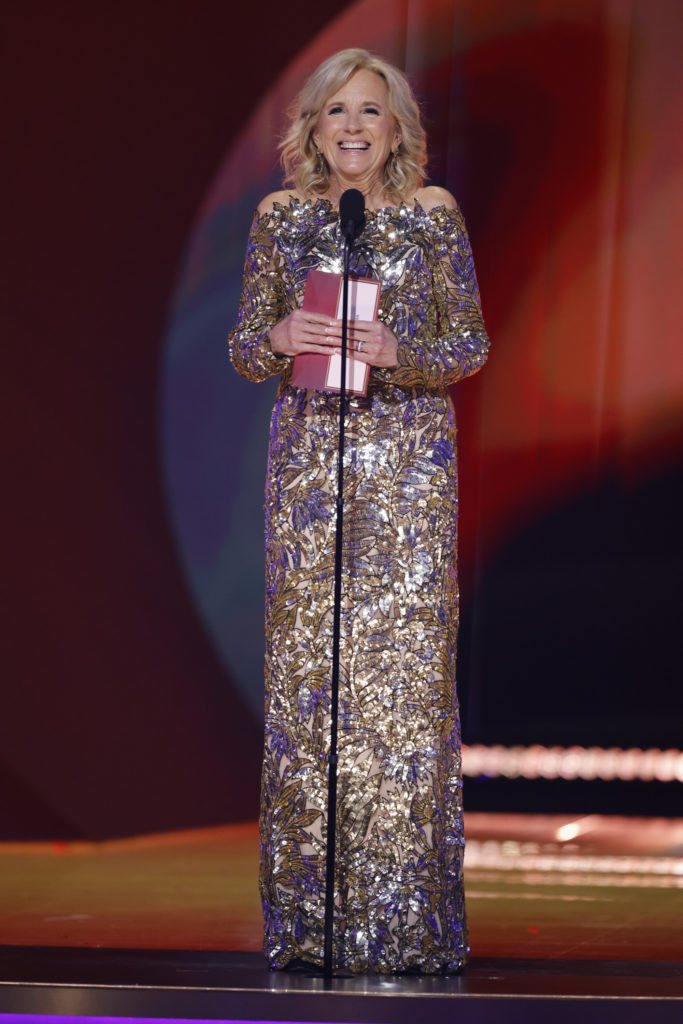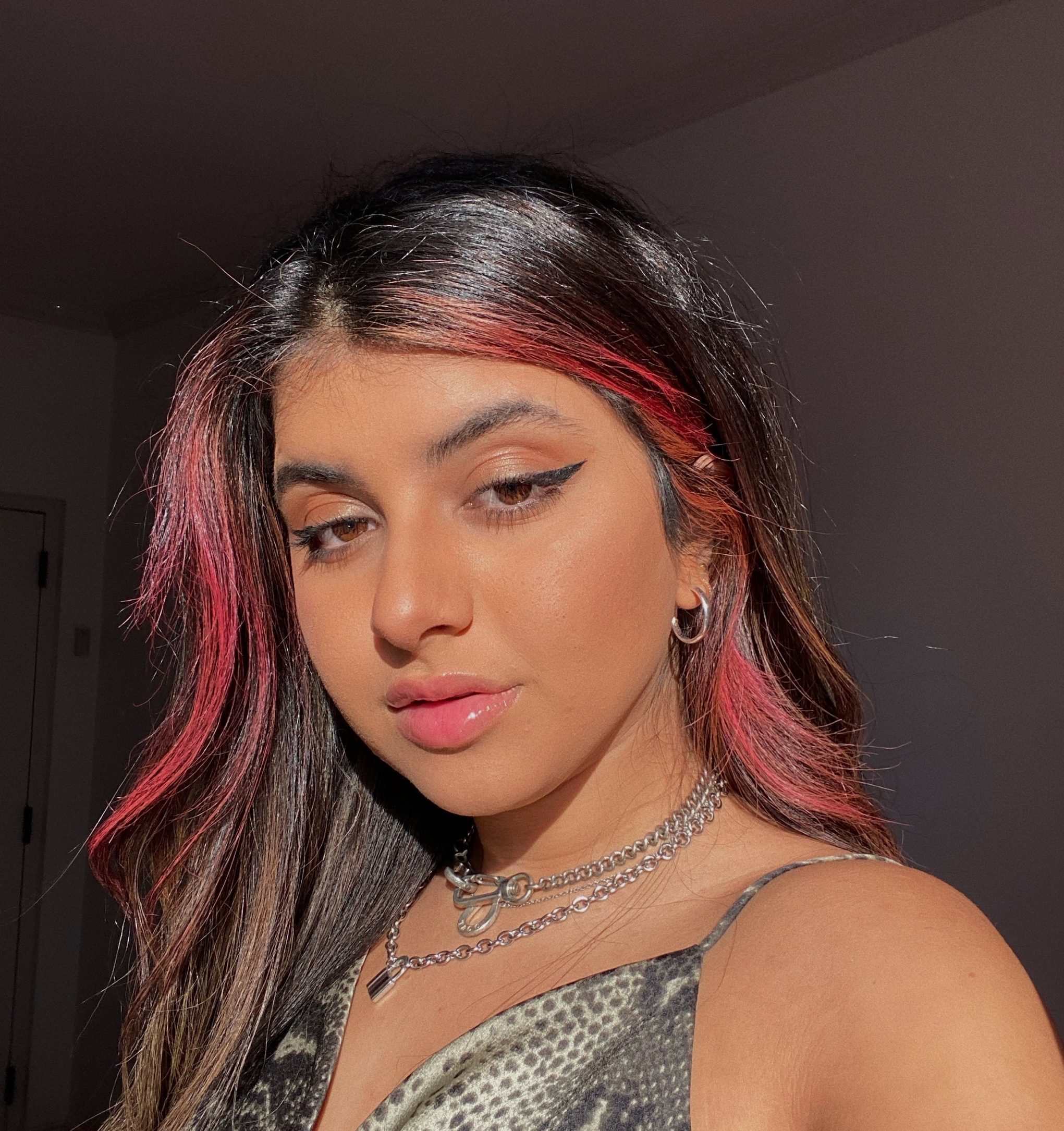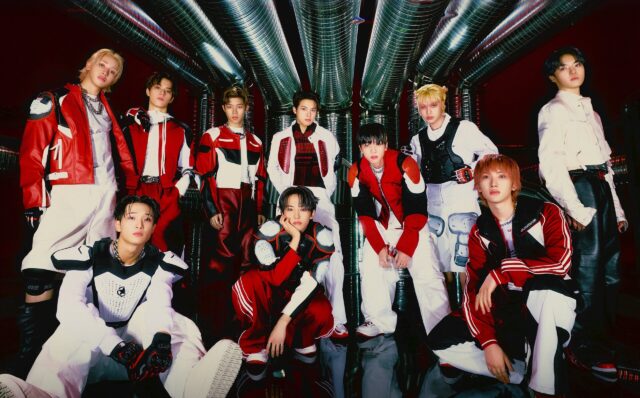Shervin Hajipour Wins Grammy for Revolutionary Iran Anthem ‘Baraye’

“Baraye,” by Iranian singer Shervin Hajipour, won a Grammy for Best Song for Social Change. The anthem supports the ongoing revolution in Iran.
Last night, First Lady Jill Biden presented the first ever Grammy under the category of Best Song for Social Change. Hajipour’s song honors Iranians fighting against the nation’s oppressive regime and has become an unofficial anthem for the revolution.
Hajipour risks a lot, from facing possible prison time to currently being banned from leaving Iran. Under Iran’s regime, speaking out against the government often leads to cruel punishment. However, Hajipour’s bravery and relentless support for freedom prove to mean more than these threats.
Because he cannot leave the country, Hajipour heard of his win in a dark room at his home. He wept as he saw his impactful message be brought to light. After his win, Hajipour posted on Instagram with a caption in Farsi translating to “We won.”
“Baraye” went viral, especially in the Iranian community, quickly after its release initially posted on Hajipour’s Instagram. The song garnered over 40 million listens within days, and its mission to amplify Iranian voices perseveres.
What is happening in Iran?
In September 2022, Mahsa Zhina Amini was murdered by Iran’s morality police. Her crime of “improperly” wearing Iran’s mandatory hijab resulted in her being beaten and passing away from fatal injuries three days later.
Anger towards this instance and the government’s cruel treatment of its people for the past 40 years sparked national and international protests. Still ongoing today, Iran is now amidst a revolution. The government is retaliating with violence, public executions, death, imprisonment, and more. But Iranians are stopping at nothing in fighting for a free nation.
@forwomenlifefreedom BREAKING! Shervin Hajipour’s iconic “Baraye” wins the first EVER Grammy for “Song for Social Change” at the 65th Annual Grammy Awards. Released on September 28, 2022, in the wake of Zhina #MahsaAmini’s murder and the start of #IranProtest, 25-year-old Iranian musician Shervin Hajipour’s “Baraye” video amassed over 40-million views in just 48 hours. Shervin’s powerful “Baraye” (meaning “For” in Farsi,) captivated the world, with lyrics composed with tweets of the reasons why Iranians were joining the protests — women’s, children’s, and refugees rights; protesting theocracy and outdated social norms; advocating against political corruption and for freedom of speech. The viral song lead to Hajipour’s arrest, removal of his video from his platforms, and a forced apology. Global outcry over his disappearance and arrest lead to his release on bail. Shervin has been silenced ever since and barred from leaving the country, with his song continuing as a rallying cry across the world. “Baraye” has played a historic role as a global anthem for the #womanlifefreedom movement, becoming the single most covered protest song in Iran’s history. It’s been chanted at protests from Berlin to LA, and on stage by artists like Coldplay and Rana Mansour. In the 141-days since the protests began, the movement has evolved into a revolution. At least 527-innocent protesters have been killed by IR forces — at least 70 of those being children. 4 protesters have been executed. 19,623 protesters remain imprisoned, with dozens at risk of execution — including dissident rappers #ToomajSalehi and #SamanYasin. Iranians are steadfast in their fight for freedom, with Baraye continuing to be the soundtrack to their efforts. We want to use this moment of celebration to call attention to the innocent protesters who remain unjustly imprisoned in the Islamic Republic of Iran, many of whom face execution. Please join us to demand #StopExecutionsInIran and #FreeAllPoliticalPrisoners ♬ For Freedom – Baraie Azadi – Shervin Hajipour
For more in-depth reliable information, the Iranian Diaspora Collective is a great place to learn about what is currently happening in Iran. The group’s Linktree also provides resources to learn and do your part in helping.
So, why is the Grammy important?
“Baraye” translates into “For” in English, and the artist uses this to describe what life is like under the Islamic Regime of Iran, and the desire to break away from it. The song begins with, “For dancing in the streets/ For the fear when kissing.” These lyrics point toward actions that are forbidden in Iran’s public life. Hajipour ends the anthem powerfully, reciting, “For women, life, freedom.” After Amini’s death, this slogan symbolizes the revolution.
Since its start, the revolution has not been gaining proper media traction around the world. From false reports toning down the severity to Iran’s control over media usage, the movement is often swept under the rug. But these efforts do not slow down Iranians both in and out of the country as they continue speaking out.
Such public recognition of the bravery and strength of Iranians deserving of celebration. The revolution is ongoing, and the fight is not over, but Hajipour and his unofficial anthem “Baraye” have been helping immensely in maintaining optimism of achieving a free Iran.
Listen to “Baraye” here.

Writer | Tweet me @rachelnazar





